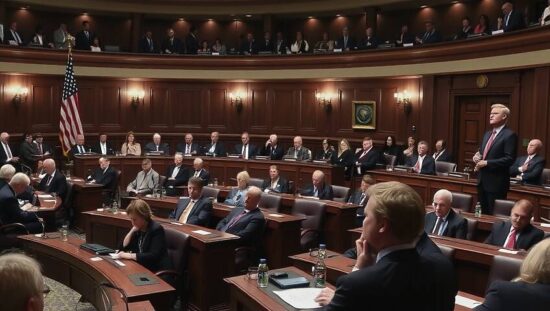House of Representatives Elects Speaker in First Vote, but No Majority for Republican Mike Johnson
In the first vote for the speaker of the US House of Representatives on Friday, Republican Mike Johnson failed to secure the position. Of the 434 present members, 216 voted for Johnson, while 214 voted for the Democratic candidate, Hakeem Jeffries. One Republican voted for Jim Jordan, Byron Donalds, and Tom Emmer each.
A majority of 218 votes was needed, so Johnson relied on the support of almost all 219 Republican members of the House. Matt Gaetz, who would have been the 220th Republican in the chamber, had resigned due to being considered for Attorney General by President-elect Donald Trump, leaving his seat vacant. The Democrats have 215 members in the House.
President-elect Donald Trump had publicly endorsed Johnson in the run-up to the vote. The Louisiana representative was a key figure in the House’s efforts to overturn the 2020 presidential election results, having been one of the representatives who voted to challenge the electoral college count.
The election of a speaker is typically a formality that is quickly resolved. However, in 2023, Republican Kevin McCarthy required 15 ballots to secure the position. If the process takes longer this time as well, the planned confirmation of Donald Trump’s election victory by the chamber could be delayed, as other parliamentary procedures, such as the swearing-in of members, cannot be carried out without a speaker in office.





